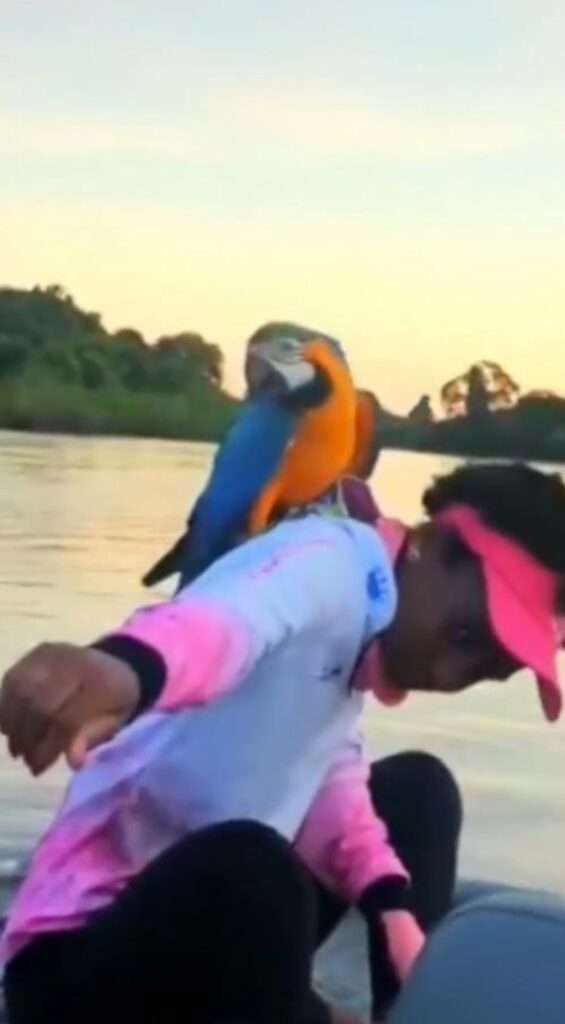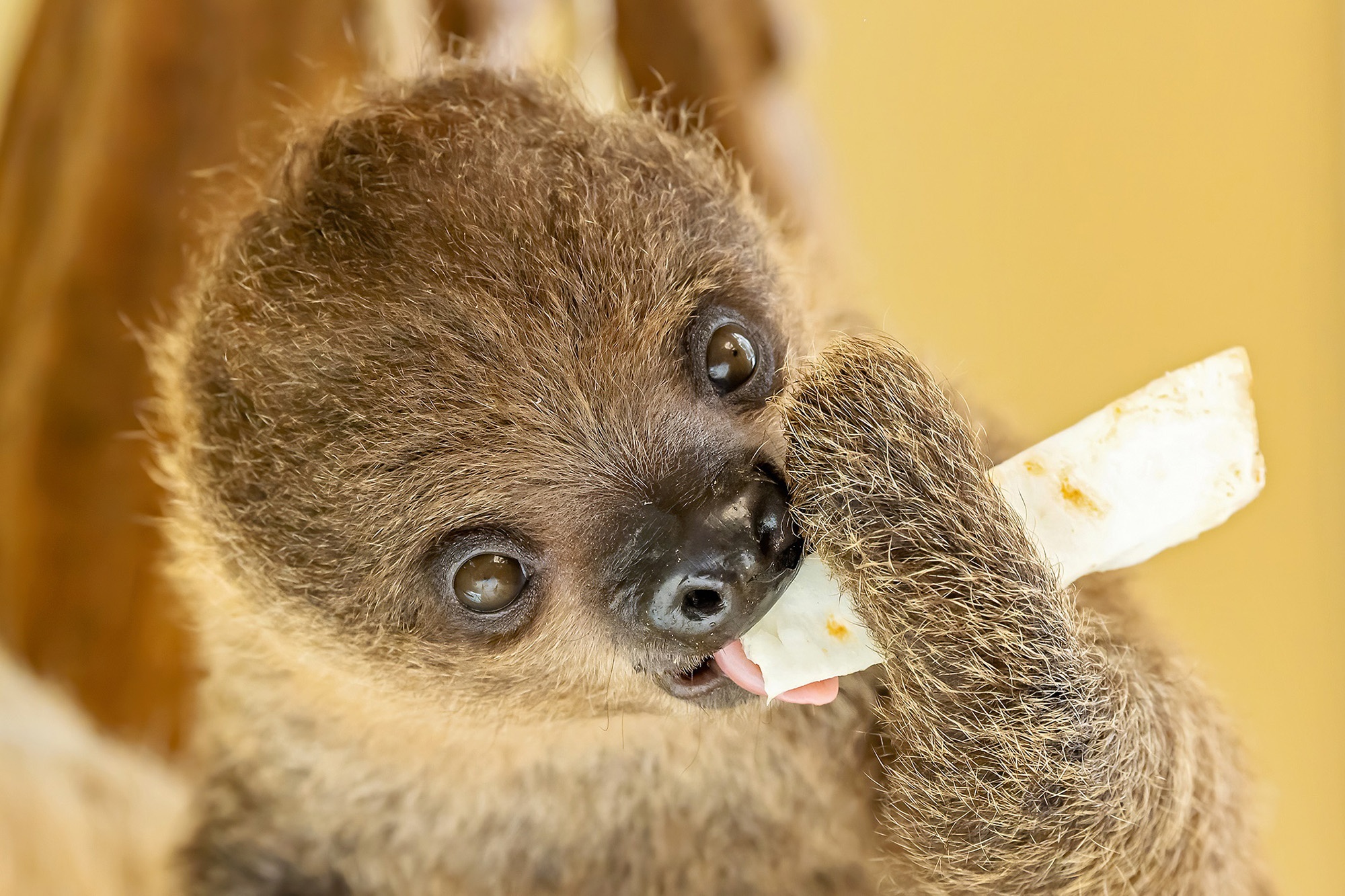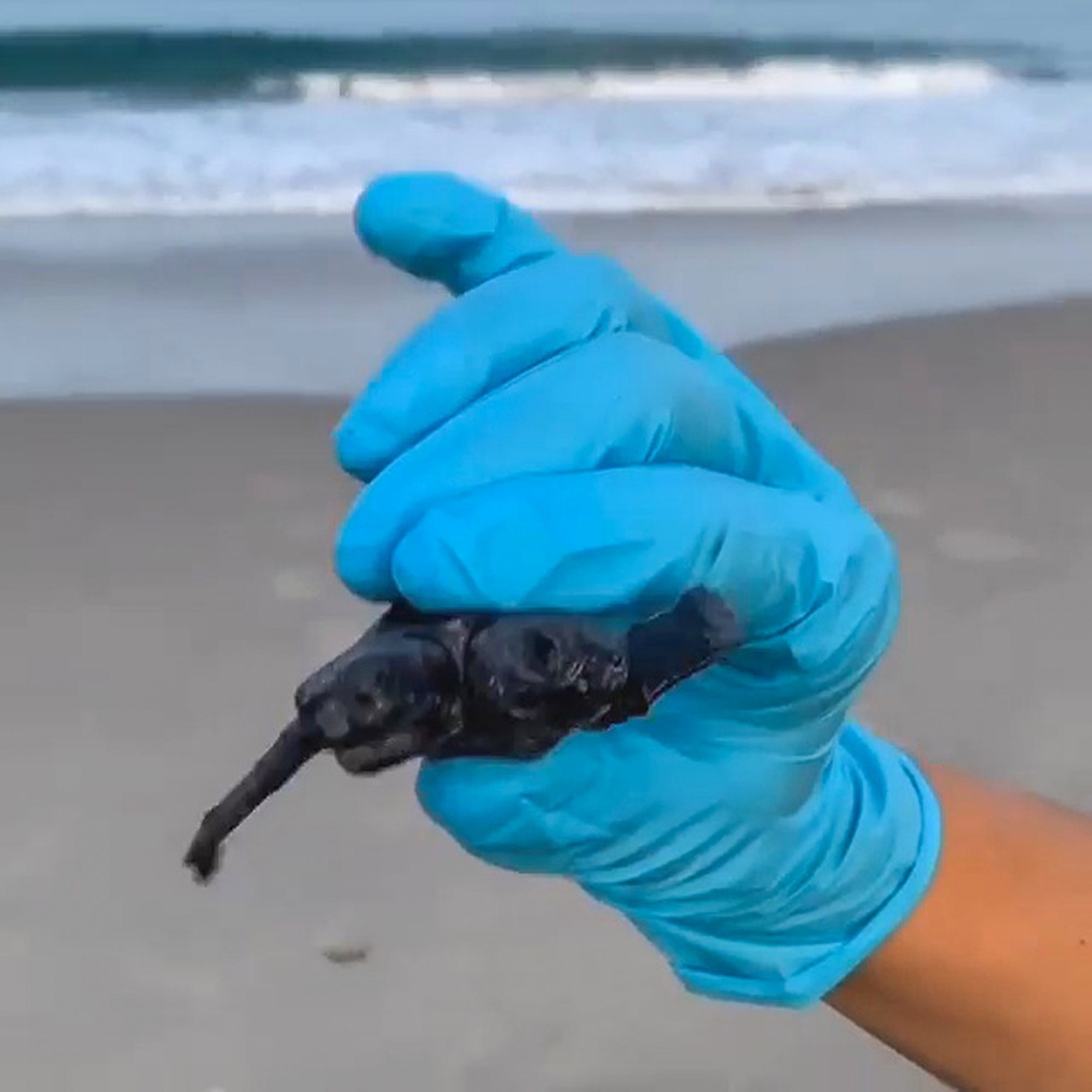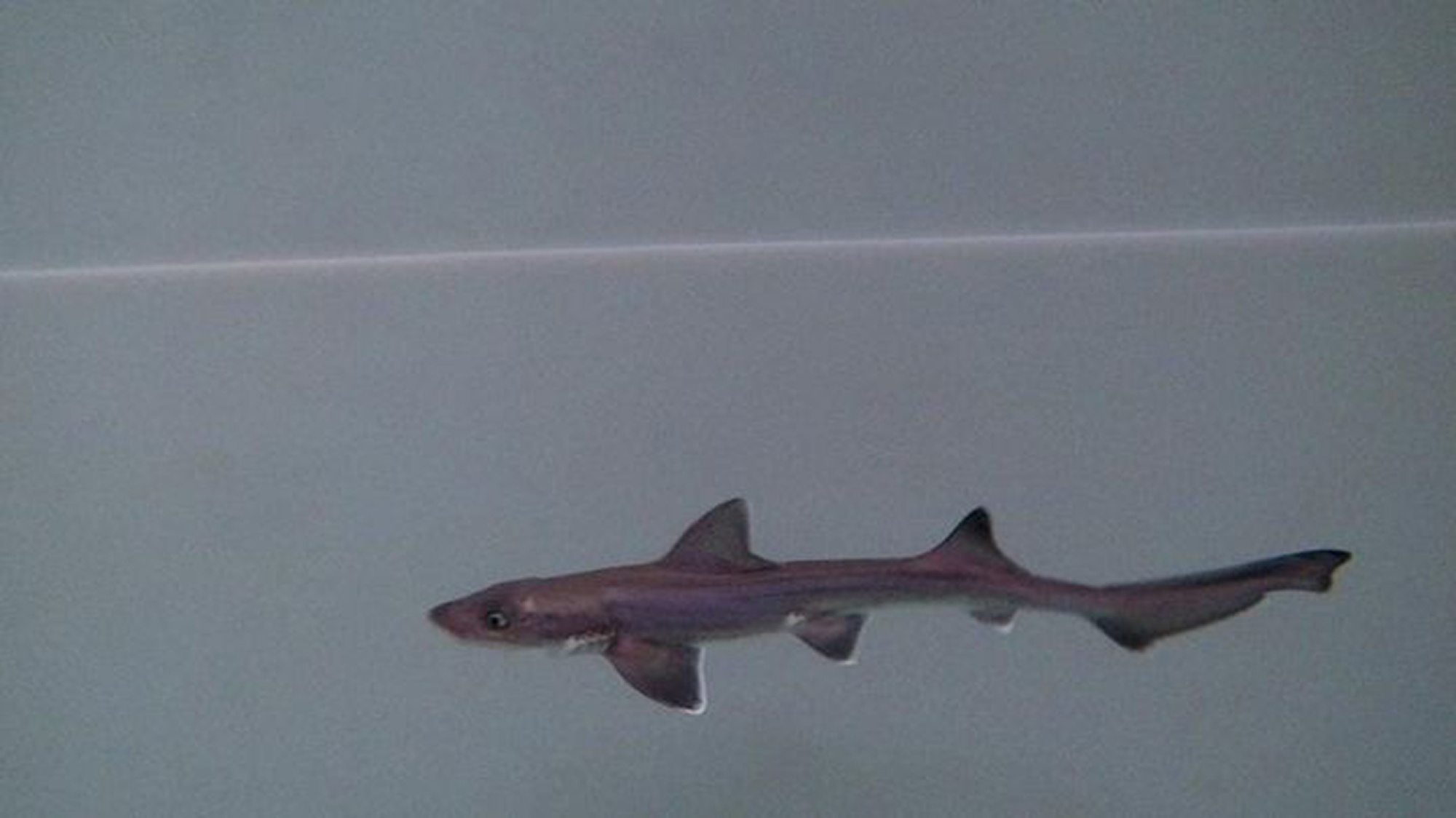Boat-trippers could be heard laughing in hysterics after a blue-and-yellow macaw landed on their terrified pal’s back and stayed there for more than 10 minutes.
HUGE PARROT LANDS ON BOAT-TRIPPER AND REFUSES TO BUDGE pic.twitter.com/MKpkB57Vdw
— NewsX (@newsx_media) June 16, 2023
The unusual scene was filmed on the Miranda River in Miranda, Brazil, last weekend.
Admin assistant Mirela Oliveira was enjoying a fishing trip on the river when the large parrot landed on the nape of her neck and refused to budge.
Mirela, who lives in the city of Campo Grande, told how the bird left the branch of a tree and flew straight towards her.
The 26-year-old said: “She came and stopped on my head, started walking on my neck, arm, I got scared and started screaming and moving, then I calmed down.

“I had already seen people have contact with macaws, but in places where they are fed, but we were in a place where this doesn’t happen.”
Footage filmed by Mirela’s pals shows how the young woman was scared witless while the big bird looked completely nonplussed and even nibbled on her hair.
She said: “I sat down, moved around, people with me offered their arm for her to pass, and even so she remained on my head for over 10 minutes.”
Mirela has been practising catch and release for three years. She joked: “Usually I catch some fish, but this time I didn’t catch anything. I went after fish and got something better, I conquered a macaw.”
She plans to go back to the river on 21st April. She said: “I don’t know if I’ll have the same pleasure of finding her again, but I’m hoping that happens, it was so amazing!”

The blue-and-yellow macaw (Ara ararauna) is classified by the International Union for Conservation of Nature as a species of least concern.
However, it is considered endangered in some parts of Brazil.
This is partly because it moves long distances between resting and feeding places during the day and is, therefore, considered easy prey.










